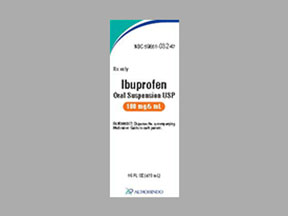
Childrens Ibuprofen Coupons & Savings Card – Discount Prices from $6.93
Brand for: Ibuprofen
My prescription
Edit
118ML of 100MG/5ML, Ibuprofen (1 Bottle)
Select pharmacy

CVS
$21.72
COUPON PRICE
Walmart
$6.93
COUPON PRICE
Albertsons
$8.72
COUPON PRICE
Walgreens
$8.81
COUPON PRICEChildrens Ibuprofen savings card
Show this card to your pharmacist
Walmart
$6.93
BIN
ID
PCN
GRP
019876
LHF254DA69
CHIPPO
LHX
Powered by
More prescriptions for rheumatoid arthritis
More prescriptions for rheumatoid arthritis
Price history for Childrens Ibuprofen (brand) & Ibuprofen (generic)
1 Bottle, 118ML of 100MG/5ML
Average retail price for Childrens Ibuprofen
Average retail price for Ibuprofen
Average SaveHealth price for Ibuprofen
Our price history data is based on aggregated prescription data collected from participating pharmacies in America. Our prescription data updates daily to reflect the latest price changes. If you notice a missing data point, it means there wasn't sufficient data available to generate a monetary value for that date.
Over the last 12 months, the average discount price of Childrens Ibuprofen is $11.65 using the SaveHealth savings card. That's an average savings of -40.53% on Childrens Ibuprofen with our discount card.
*Retail prices are based on pharmacy claims data, and may not be accurate when we don't have enough claims.
Childrens Ibuprofen (Ibuprofen) dosage forms
Dosage Quantity Price from Per unit 118ML of 100MG/5ML 1 Bottle $6.93 $6.93 118ML of 100MG/5ML 2 Bottles $11.35 $5.67 118ML of 100MG/5ML 3 Bottles $15.78 $5.26 118ML of 100MG/5ML 4 Bottles $20.21 $5.05 118ML of 100MG/5ML 5 Bottles $24.64 $4.93
| Dosage | Quantity | Price from | Per unit |
|---|---|---|---|
| 118ML of 100MG/5ML | 1 Bottle | $6.93 | $6.93 |
| 118ML of 100MG/5ML | 2 Bottles | $11.35 | $5.67 |
| 118ML of 100MG/5ML | 3 Bottles | $15.78 | $5.26 |
| 118ML of 100MG/5ML | 4 Bottles | $20.21 | $5.05 |
| 118ML of 100MG/5ML | 5 Bottles | $24.64 | $4.93 |
Why is ibuprofen not recommended for children?
Ibuprofen is generally considered safe for children over six months of age when used according to dosing guidelines. However, it is not recommended for infants under six months due to the risk of kidney damage and other potential side effects. Additionally, ibuprofen should be used with caution in children with certain medical conditions, such as asthma or kidney issues. It is always important to follow a healthcare provider's guidance when administering medication to children.
When should you not give a child ibuprofen?
Ibuprofen should not be given to a child if they are under 6 months old, have a history of allergic reactions to ibuprofen or other NSAIDs, have certain medical conditions such as kidney disease, or if they are dehydrated. Additionally, it should be avoided if the child has a history of gastrointestinal bleeding or ulcers. It's important to consult a healthcare professional before giving ibuprofen to a child, especially if they have any underlying health concerns.
Using the SaveHealth discount card, what is the price of Childrens Ibuprofen without insurance?
Using the SaveHealth discount card, the price of Childrens Ibuprofen without insurance is $6.93.
What is the price of Childrens Ibuprofen at CVS?
The price of Childrens Ibuprofen at CVS is $21.72.
What is the price of Childrens Ibuprofen at Walgreens?
The price of Childrens Ibuprofen at Walgreens is $8.81.
What is the price of Childrens Ibuprofen at Walmart?
The price of Childrens Ibuprofen at Walmart is $6.93.
